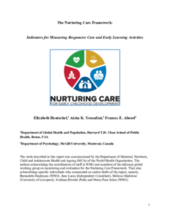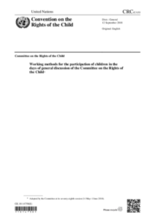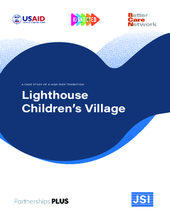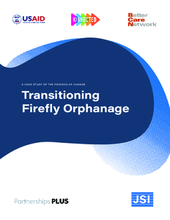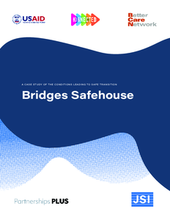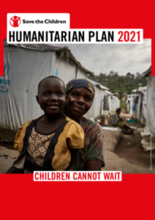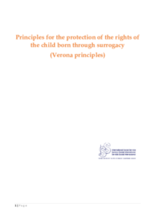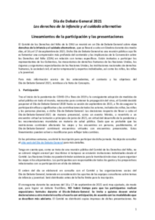Displaying 1151 - 1160 of 4424
This handbook is part of a set of resources for implementing the Nurturing Care Framework.
Two new indicators for the Monitoring and Evaluation Framework of the Nurturing Care Framework (NCF) have been developed in support of programme implementation. These indicators need to be validated before they can be recommended widely. Read the report to learn more about the proposed indicators.
Family for Every Child has launched a new social network platform for child rights practitioners, called Changemakers for Children (changemakersforchildren.community). Child rights practitioners are invited to sign-up to the platform and join a global movement of local leaders working in children’s care and protection.
These working methods aim to facilitate and promote the meaningful participation of all children, particularly those in disadvantaged or vulnerable situations, in days of general discussion.
Lighthouse Children’s Village was established in 2004 as a privately-run and privately-funded residential care institution. In 2014, its long-time principal donor made the decision to phase out of financially supporting institutional care. This case study highlights some of the early warning signs and subsequent discovery of unethical and criminal behavior that can sometimes be observed in a transition process.
This case study highlights some of the key dynamics that arose throughout one organization's process of transitioning their services from residential care to non-institutional programming and examines how those dynamics both influenced the transition and determined the type of support provided, as well as the most appropriate transition strategy. The case study is organized around the various stages of transition and explores some of the key themes outlined in the Transitioning Models of Care Assessment Tool.
This case study highlights some of the prerequisites for the starting point of a successful transition from residential care to a non-residential model, many of which are often overlooked or underestimated. The case study is organized around the various stages of transition and explores some of the key themes outlined in the Transitioning Models of Care Assessment Tool.
In this Humanitarian Plan, Save the Children lays out its response to the COVID-19 crisis, which is designed to directly support and advocate for children’s right to survive, learn and be protected, and will be delivered through a multi-sectoral response to children’s needs arising from the wide-ranging impacts of COVID-19 on children’s rights.
These Principles are designed to inspire and provide guidance on legislative, policy and practical reforms on the upholding of children’s rights born through surrogacy.
El Comité de los Derechos del Niño de la ONU se reunirá en un Día de Debate General sobre «Los derechos de la infancia y el cuidado alternativo», que se llevará a cabo en Ginebra durante dos medio días, el 16 y el 17 de septiembre de 2021. Este documento presenta directrices para participación y presentaciones.

